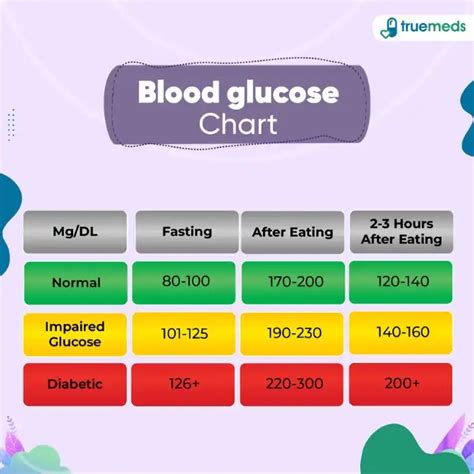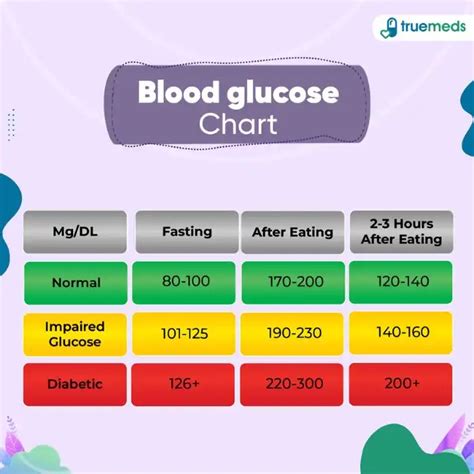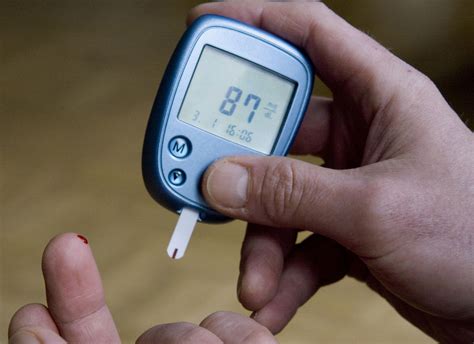Intro
Learn normal blood glucose values, including fasting, postprandial, and random levels, to manage diabetes and prediabetes with healthy blood sugar targets and glucose monitoring.
Maintaining normal blood glucose values is crucial for overall health and well-being. Blood glucose, also known as blood sugar, is the primary source of energy for the body's cells. When blood glucose levels are within a normal range, the body can function properly, and the risk of developing chronic diseases like diabetes is reduced. Normal blood glucose values are essential for people of all ages, and understanding what constitutes a normal range can help individuals take proactive steps to maintain their health.
The importance of normal blood glucose values cannot be overstated. When blood glucose levels are elevated or decreased, it can lead to a range of health problems, including fatigue, blurred vision, and increased thirst and urination. In severe cases, abnormal blood glucose levels can lead to life-threatening complications, such as diabetic ketoacidosis or hypoglycemic coma. Therefore, it is essential to understand what constitutes normal blood glucose values and take steps to maintain them.
In recent years, there has been a growing awareness of the importance of blood glucose management, particularly in the context of diabetes prevention and treatment. With the rising prevalence of diabetes worldwide, it is more critical than ever to understand the factors that influence blood glucose levels and take proactive steps to maintain normal values. By doing so, individuals can reduce their risk of developing diabetes and other related health problems, improving their overall quality of life.
Understanding Normal Blood Glucose Values

Normal blood glucose values are typically measured in milligrams per deciliter (mg/dL) or millimoles per liter (mmol/L). The normal range for blood glucose levels varies throughout the day, depending on factors such as meal times and physical activity. In general, normal blood glucose values are as follows:
- Fasting blood glucose: 70-99 mg/dL (3.9-5.5 mmol/L)
- Postprandial blood glucose (after eating): Less than 140 mg/dL (7.8 mmol/L)
- Random blood glucose: Less than 140 mg/dL (7.8 mmol/L)
It is essential to note that these values can vary slightly depending on the laboratory or testing method used. Additionally, some individuals may have different normal ranges due to factors such as age, pregnancy, or certain medical conditions.
Factors that Influence Blood Glucose Levels
Several factors can influence blood glucose levels, including: * Diet: The type and amount of carbohydrates consumed can affect blood glucose levels. * Physical activity: Regular exercise can help lower blood glucose levels. * Medications: Certain medications, such as steroids and certain antidepressants, can raise blood glucose levels. * Sleep: Poor sleep quality and duration can disrupt blood glucose regulation. * Stress: Chronic stress can raise blood glucose levels.Understanding these factors can help individuals take proactive steps to maintain normal blood glucose values.
Benefits of Maintaining Normal Blood Glucose Values

Maintaining normal blood glucose values has numerous benefits, including:
- Reduced risk of diabetes: Keeping blood glucose levels within a normal range can reduce the risk of developing type 2 diabetes.
- Improved energy levels: Normal blood glucose levels can help improve energy levels and reduce fatigue.
- Enhanced cognitive function: Maintaining normal blood glucose levels can help improve cognitive function and reduce the risk of dementia.
- Better weight management: Normal blood glucose levels can help with weight management and reduce the risk of obesity.
By maintaining normal blood glucose values, individuals can reduce their risk of developing chronic diseases and improve their overall quality of life.
Strategies for Maintaining Normal Blood Glucose Values
Several strategies can help maintain normal blood glucose values, including: * Eating a balanced diet: Focus on whole, unprocessed foods like vegetables, fruits, whole grains, lean proteins, and healthy fats. * Staying hydrated: Drink plenty of water throughout the day to help regulate blood glucose levels. * Engaging in regular physical activity: Aim for at least 150 minutes of moderate-intensity exercise per week. * Getting enough sleep: Aim for 7-9 hours of sleep per night to help regulate blood glucose levels. * Managing stress: Engage in stress-reducing activities like meditation, yoga, or deep breathing exercises.By incorporating these strategies into daily life, individuals can help maintain normal blood glucose values and reduce their risk of developing chronic diseases.
Monitoring Blood Glucose Levels

Monitoring blood glucose levels is essential for maintaining normal values. There are several ways to monitor blood glucose levels, including:
- Fasting blood glucose tests: Measure blood glucose levels after an overnight fast.
- Postprandial blood glucose tests: Measure blood glucose levels after eating.
- Random blood glucose tests: Measure blood glucose levels at any time of day.
- Continuous glucose monitoring (CGM) systems: Use a small sensor to track blood glucose levels throughout the day.
By monitoring blood glucose levels regularly, individuals can identify any abnormalities and take proactive steps to maintain normal values.
Common Mistakes to Avoid
Several common mistakes can disrupt blood glucose regulation, including: * Skipping meals: Skipping meals can lead to low blood glucose levels. * Overeating: Consuming large amounts of carbohydrates can lead to high blood glucose levels. * Not staying hydrated: Dehydration can disrupt blood glucose regulation. * Not getting enough sleep: Poor sleep quality and duration can disrupt blood glucose regulation. * Not managing stress: Chronic stress can raise blood glucose levels.By avoiding these common mistakes, individuals can help maintain normal blood glucose values and reduce their risk of developing chronic diseases.
Conclusion and Next Steps

In conclusion, maintaining normal blood glucose values is essential for overall health and well-being. By understanding the factors that influence blood glucose levels and taking proactive steps to maintain normal values, individuals can reduce their risk of developing chronic diseases like diabetes. It is essential to monitor blood glucose levels regularly and avoid common mistakes that can disrupt blood glucose regulation.
We invite you to share your thoughts and experiences on maintaining normal blood glucose values. What strategies have you found most effective? What challenges have you faced, and how have you overcome them? By sharing your insights, you can help others take proactive steps to maintain their health and well-being.
What are normal blood glucose values?
+Normal blood glucose values are typically between 70-99 mg/dL (3.9-5.5 mmol/L) for fasting blood glucose and less than 140 mg/dL (7.8 mmol/L) for postprandial and random blood glucose.
How can I maintain normal blood glucose values?
+Maintaining normal blood glucose values can be achieved by eating a balanced diet, staying hydrated, engaging in regular physical activity, getting enough sleep, and managing stress.
What are the benefits of maintaining normal blood glucose values?
+Maintaining normal blood glucose values can reduce the risk of developing chronic diseases like diabetes, improve energy levels, enhance cognitive function, and aid in weight management.
